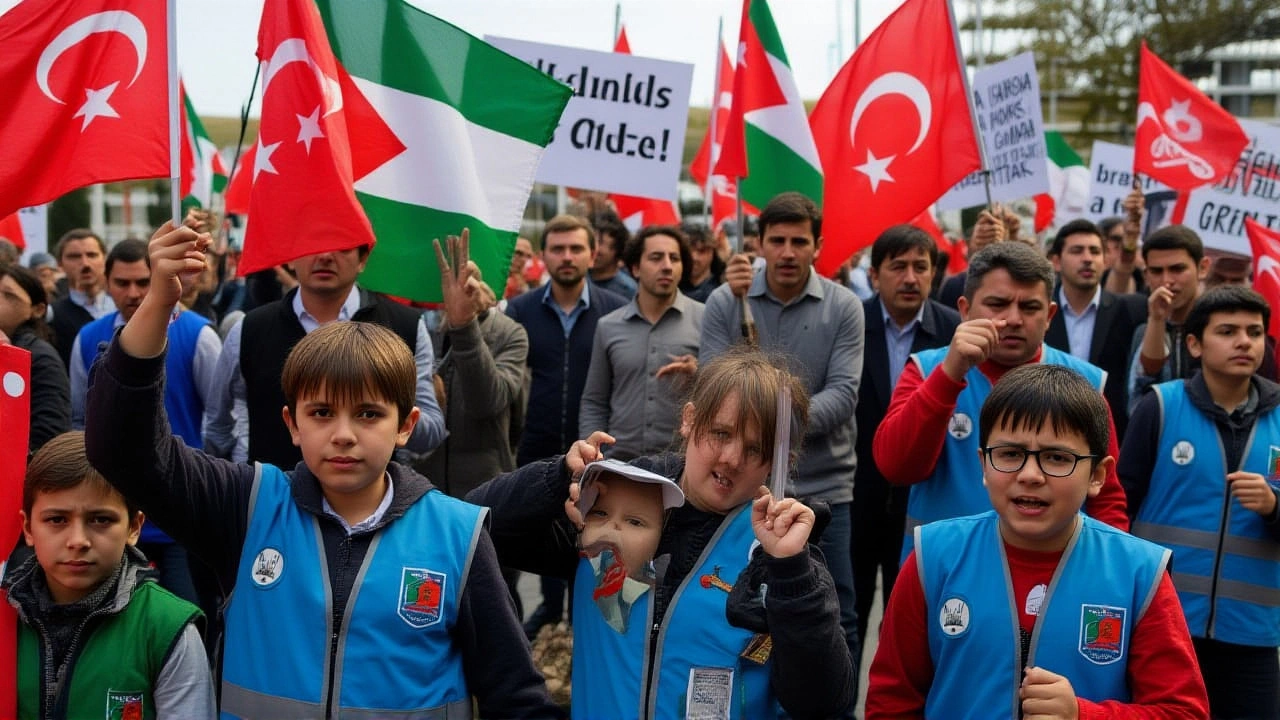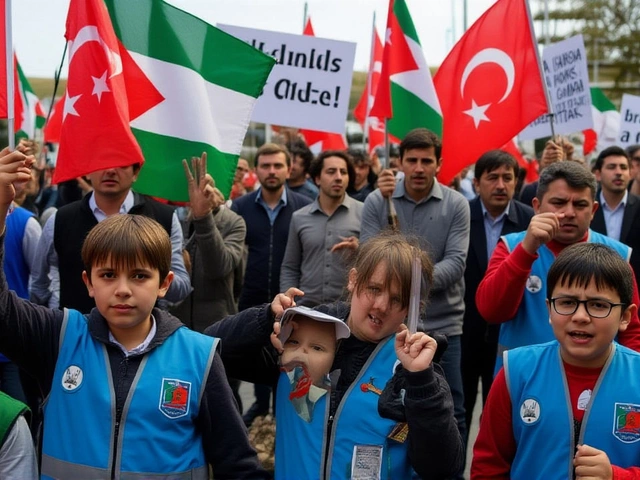When Greta Thunberg, climate activist said Israeli officials "treated her like an animal" during detention, the world took notice. The claim came on October 5, 2025, when 137 activists from the Global Sumud Flotilla were flown into Istanbul Airport after Israel deported them for trying to breach the Gaza naval blockade. Witnesses allege that Israeli guards dragged Thunberg, placed an Israeli flag over her face, and shoved her onto a trolley – a vivid picture that adds fresh heat to an already simmering diplomatic fire.
Background: Flotilla activism and the Gaza blockade
Since 2010, international activist groups have repeatedly organized sea‑borne missions to challenge the Gaza blockade imposed by Israel. The blockade, which Israel says is vital for security, restricts the flow of goods, fuel and medical supplies into the densely populated Palestinian enclave. Humanitarian NGOs argue the restrictions amount to collective punishment and have called for open‑deck deliveries.
The latest effort, dubbed the Global Sumud Flotilla, set sail from Larnaca, Cyprus on October 3, 2025. The flotilla comprised eight small vessels and a crew of 137 activists representing 14 nations – including 36 Turkish nationals, and citizens from the United States, United Arab Emirates, Algeria, Morocco, Italy, Kuwait, Libya, Malaysia, Mauritania, Switzerland, Tunisia, and Jordan. According to sources at the Turkish Foreign Ministry, the diverse roster underscored "broad international concern" over the humanitarian crisis in Gaza.
The interception and detention
Israeli naval forces intercepted the flotilla on the morning of October 3, just hours after the vessels entered the 70‑kilometer exclusion zone. The ships were boarded, the aid cargoes seized, and all 137 participants were taken to a detention facility near the port of Ashdod.
Inside, activists reported cramped conditions, limited access to clean water, and the confiscation of personal belongings such as phones and cameras. Two days later, Israeli authorities announced the decision to deport the entire group, a move coordinated with Turkish officials who arranged a chartered flight back to Istanbul.
Allegations of mistreatment
Two activists who spoke to Reuters at Istanbul Airport provided harrowing details about how Thunberg was handled. One said: "I saw them drag her very intensely, put an Israeli flag on her face and push her onto a trolley – they treated her like an animal." The second corroborated: "She was draped in the flag, pushed, and it was terrible to watch."
Beyond Thunberg’s case, the detainees described a broader pattern of neglect: stale food, a shortage of potable water, and the lack of legal counsel for the first 48 hours. The activists claim that the Israeli foreign ministry earlier dismissed any allegations of abuse as "complete lies," a denial that has only intensified international scrutiny.
Reactions from governments and NGOs
Turkey’s foreign ministry issued a statement urging Israel to investigate the allegations and to ensure humane treatment for all deported citizens. Meanwhile, the European Union’s humanitarian office called for an independent inquiry, emphasizing that any mistreatment of a high‑profile figure like Thunberg could "escalate diplomatic tensions further."
Human rights groups such as Amnesty International and Human Rights Watch have opened separate investigations, citing the activists’ testimonies and the documented pattern of previous flotilla incidents, including the 2010 Mavi Marmara raid, which resulted in nine deaths.
What this means for future humanitarian efforts
The episode highlights the razor‑thin line activists walk when confronting maritime blockades. On one hand, the public visibility of a figure like Thunberg can galvanize global opinion; on the other, it can provoke harsher responses from authorities wary of international embarrassment.
Legal experts note that under international law, the right to humanitarian aid is protected, but the enforcement of a naval blockade is also recognized if it meets proportionality and necessity criteria. The alleged abuse could be examined under the Geneva Conventions, which prohibit humiliating treatment of detainees.
Key timeline
- October 3, 2025 – Global Sumud Flotilla departs Larnaca, Cyprus; Israeli navy intercepts within the exclusion zone.
- October 3‑4, 2025 – Activists detained at Ashdod facility; reports of poor conditions emerge.
- October 5, 2025 – All 137 activists deported to Istanbul; allegations about Thunberg’s treatment made public.
- October 6, 2025 – Turkish Foreign Ministry requests Israeli investigation; EU humanitarian office calls for independent review.
Frequently Asked Questions
How were the activists deported back to Turkey?
Israel escorted the 137 detainees to a military airfield near Ashdod, where they boarded a chartered Turkish‑Air flight. The aircraft landed at Istanbul Airport on the afternoon of October 5, where Turkish officials processed the arrivals and provided immediate assistance.
What response has Israel given to the abuse allegations?
The Israeli foreign ministry has so far labeled the broader mistreatment claims as "complete lies," while refusing to comment on the specific accusations involving Greta Thunberg. No official investigation has been announced as of October 6.
Who coordinated the Global Sumud Flotilla?
The flotilla was organized by a coalition of NGOs based in Cyprus and Turkey, with logistical support from volunteers in the participating countries. The coordination hub operated out of Larnaca, where the vessels were loaded with medical supplies, food parcels and personal items for Gaza.
What are the legal implications of breaching the Gaza naval blockade?
International law permits blockades if they are declared, publicly announced and applied proportionally. Breaching a lawful blockade may be deemed a violation, but humanitarian aid deliveries can be protected under the right of free passage for relief supplies. Courts would weigh the intent, the nature of the cargo, and any alleged mistreatment of detainees.
How might this incident affect future activist missions?
The alleged mistreatment could deter some volunteers, but it may also rally further international support, especially given the involvement of a high‑profile figure like Greta Thunberg. Governments may tighten security protocols, while NGOs could push for stronger legal protections for humanitarian convoys.







